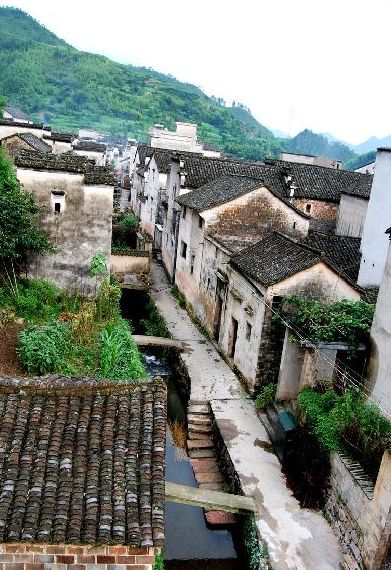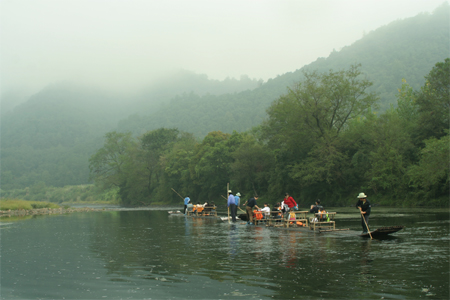Xuancheng

 |
| Xuancheng Jixi county |
Xuancheng city is situated where the mountainous area in the southern part of Anhui province meets the plain on the lower and middle reaches of the Yangtze River. It exercises jurisdiction over one district, one city and five counties, i.e., Xuanzhou district, Ningguo city, and Langxi, Guangde, Jingxian, Jixi and Jingde counties. It covers an area of 12,340 square km and has a population of 2.73 million.
Xuancheng borders Tianmu Mountain in the east, Huangshan Mountain in the south and Jiuhua Mountain in the west. It is blessed with gorgeous natural landscapes, such as Jingting, Bojian, Shuxi and Longxu mountains, which are covered with verdant trees and decorated with undulating peaks and towering crags. Xuancheng city contains the Qingyi and Shuiyang rivers, beautiful Nanyi, Taiping and Qinglong lakes, and three nature reserves—the Qingliangfeng, Banqiao and Chinese Alligator Lake—which not only abound with rare animals and exotic plants, but are also picturesque in their own right.
In addition, Xuancheng boasts numerous historical sites. Examples are the Xietiao Tower, which joins the Yellow Crane Tower, Yueyang Tower and King Teng Tower to be the top four towers in the area south of the Yangtze River, Jingting Mountain, which is known as the "Poem Mountain in Area South of the Yangtze River", the Twin Pagodas in the Guangjiao Temple, which is a key cultural relic site under state protection, and the Taiji Karst Cave.
Thanks to its countless cultural relics and intoxicating natural scenery, Xuancheng enjoys a reputation of being the First Cultural City in Anhui. It is also often said that Xuancheng has since ancient times been home to poets due to a wealth of poems left by many famous poets, such as Xie Tiao (464—499), Li Bai (701—762) and Du Mu (803—853).
 |
| The best drift in south of the Yangtze River |
 0
0 






